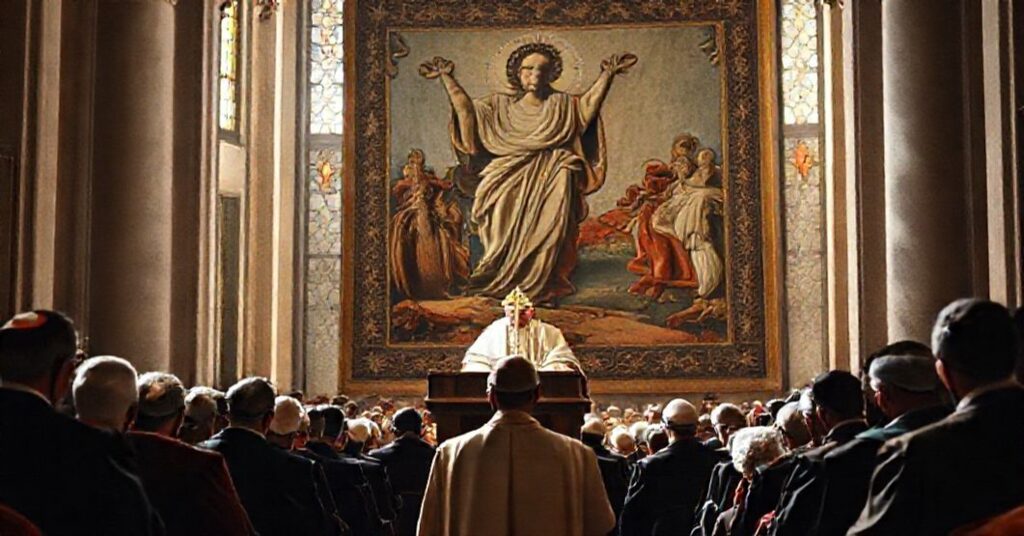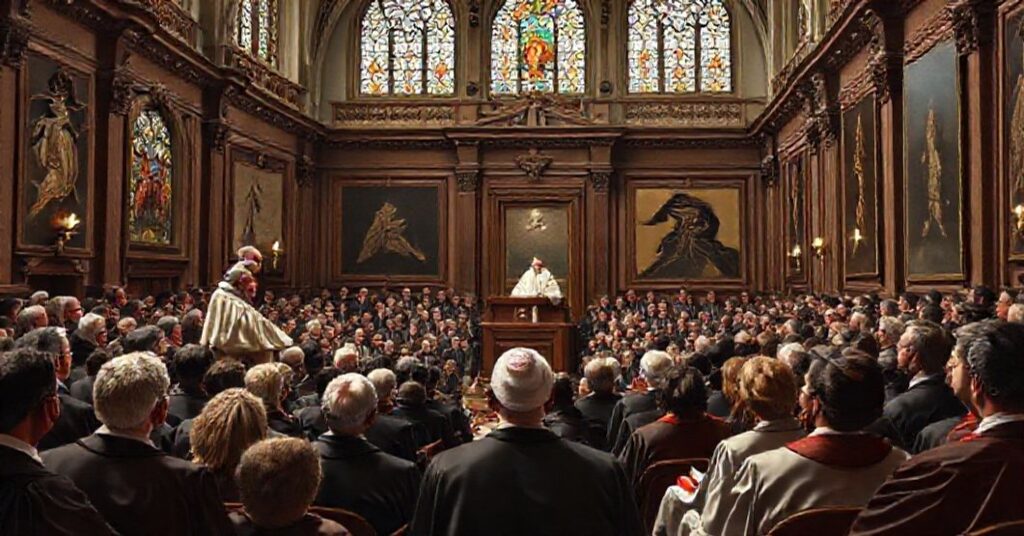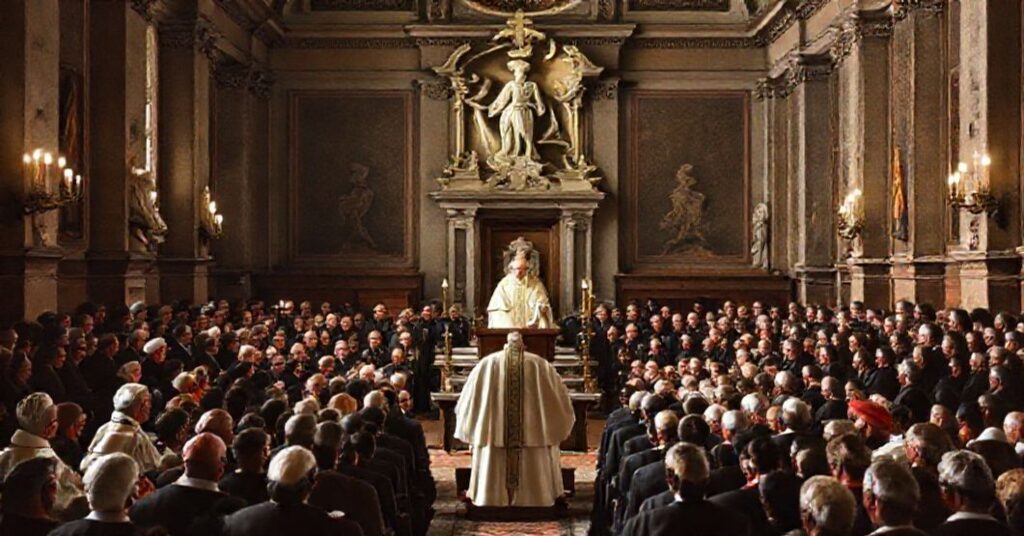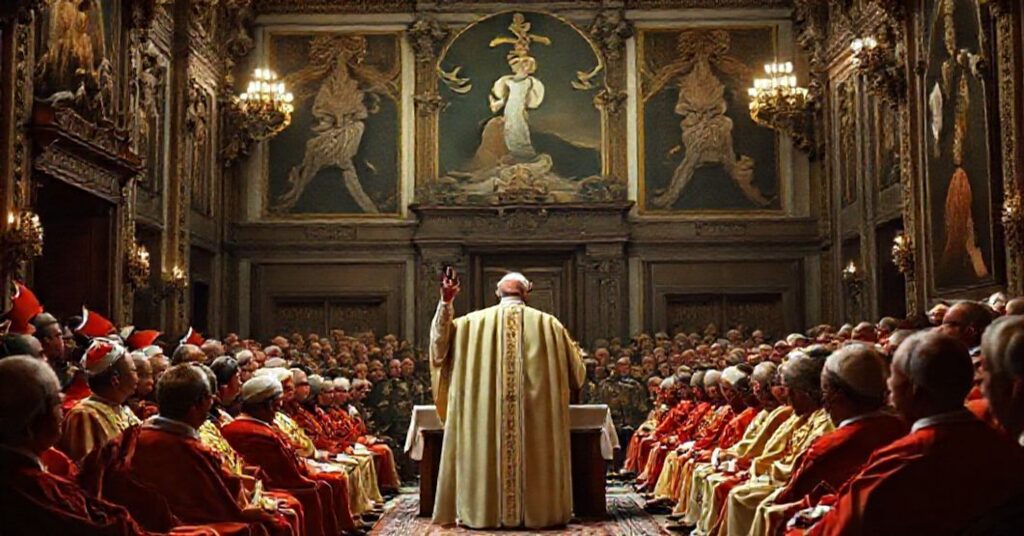Allocutio Ioannis XXIII (1959.04.07) Ciceronian Humanism Against the Kingship of Christ
The text is a brief allocution by John XXIII to participants of an international Ciceronian congress in Rome (April 7, 1959). He courteously praises their dedication to Cicero and classical Latin, deplores the neglect of such studies in a technocratic age, extols ancient wisdom as a noble preparation for higher things, and cites Augustine’s praise of Cicero’s “Hortensius” as an example of moral elevation through classical reading. He concludes with paternal good wishes.










